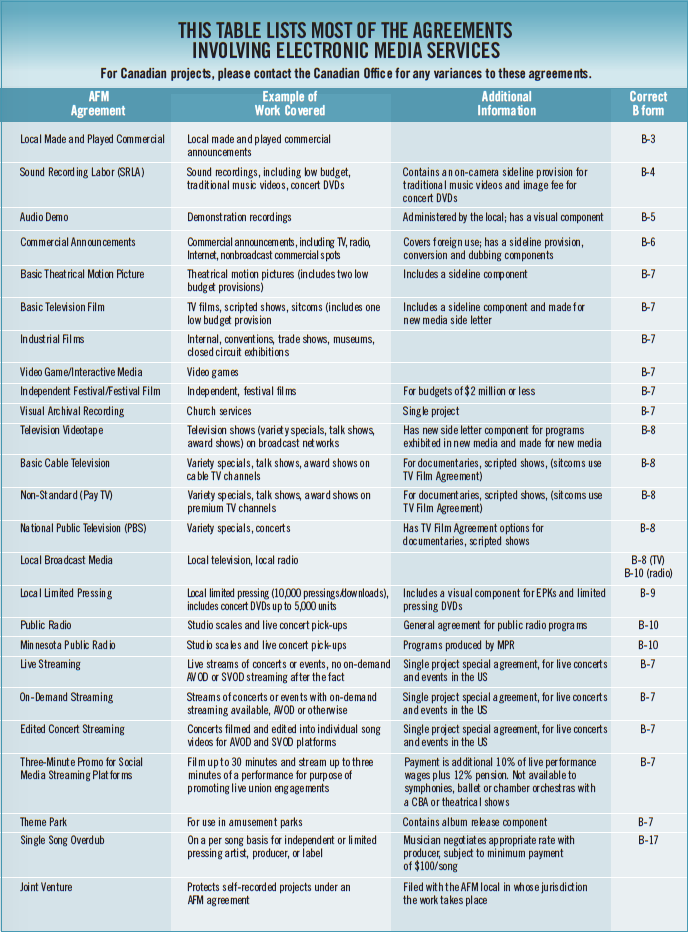By Kevin Case, ICSOM Counsel and Member of Local 10-208 (Chicago, IL)
Editor’s note: This article was a memo sent to International Conference of Symphony and Opera Musicians (ICSOM) delegates and committee chairs, and a version of this is appearing in the ICSOM newsletter Senza Sordino. It is being reprinted with permission.
Dear Delegates:
As you know, the Covid-19 situation is developing rapidly and has begun to impact our orchestras. Several have cancelled or are planning to cancel concerts and upcoming tours, sometimes voluntarily and sometimes in response to orders from a municipal government or other controlling authority. Musicians have concerns about the legal implications of this on their employment—particularly the application of force majeure or “Act of God” clauses—and about how to work with management in this uncertain time.
This message is intended to provide (1) legal guidance regarding the application of force majeure and (2) practical guidance as to steps you may want to take in dealing with management. As always, however, it is crucial that your orchestra committee work closely with your local, and, where possible, solicit advice from your local’s attorney regarding the interpretation of your particular Collective Bargaining Agreement (CBA).
Force Majeure
Whether an outbreak of a disease like Covid-19 triggers a force majeure clause in a CBA requires an individualized analysis of the language. The answer may vary significantly from employer to employer.
A CBA is a binding obligation. An employer is bound by the promises it has made in the CBA and cannot be relieved of those obligations absent agreement by the union, or bankruptcy. However, the CBA itself may contain provisions that permit the employer to suspend all or part of its obligations upon the occurrence of certain contingencies (which is the written manifestation of “agreement by the union”). That is where force majeure clauses come in. A force majeure provision in a contract (otherwise called an “Act of God” clause) may relieve a party from performing its contractual obligations when circumstances beyond the party’s control arise which make the party’s performance of those obligations impossible.
Force majeure is a creature of the contract. It is not an overriding principle of contract law. That means there is typically no such thing as an “implied” force majeure provision; rather, the parties must have explicitly agreed that a force majeure event may excuse non-performance. Moreover, force majeure clauses are strictly construed by courts and arbitrators, which means that the party seeking to invoke a force majeure event will be held to the precise language the parties used in their contract.
There are a wide variety of approaches to force majeure in our orchestra CBAs. Some don’t have a force majeure clause at all. Others simply refer to an “Act of God” or permit the employer to suspend its obligation “by reason of force majeure” without further elaboration. Many list examples of natural force majeure events, such as “floods, fires, earthquakes, hurricanes,” etc. Some also include man-made events like “war” or “civil strife.” A few (unfortunately) refer to economic hardship, which on its own is not a force majeure event, but which will be enforced if the parties have agreed to put it in their agreement. Many contain a “catch-all” provision such as “other events beyond the control of the employer.”
For present purposes, I’ve identified three scenarios for discussion: (1) a CBA without a force majeure clause at all; (2) a force majeure clause that contains only the terms “force majeure” or “Act of God,” without further definition; and (3) a force majeure clause that lists specific events.
1. No force majeure clause at all
Because a CBA is a contract that is enforced primarily through arbitration, the body of law that governs the interpretation of a CBA has been developed through arbitration decisions; those decisions, in turn, often incorporate common-law contract principles. Although contract law varies from state to state, courts will not imply a force majeure provision if it does not exist in the contract.
The same cannot always be said for arbitrators, who sometimes inject subjective considerations into their decisions. Consequently, one can find a few arbitration awards that excuse an employer’s performance in cases of, for example, extremely severe weather, even in the absence of a force majeure clause. Those cases are outliers, however, as they are inconsistent with contract law (and the well-settled principle that arbitrators are forbidden to add to or modify the terms of a CBA).
Therefore, if your CBA lacks a force majeure clause, then your management should not be able to suspend its obligations and cut off your pay and benefits in the event that Covid-19 forces some kind of shutdown. That doesn’t mean your management may not try to do so, in which case you may end up in arbitration. (Note that my analysis here applies primarily to full-time, salaried musicians; for per-service musicians, subs, and extras, management may have more flexibility to cancel services without payment, depending on the language in those orchestras’ CBAs.)
There is also a chance your management may cite “impossibility” as permitting suspension of its obligations in a shutdown. There is indeed an “impossibility doctrine” in contract law, but it is rarely applied to CBAs and should have no place here. When it comes to paying musicians their salary and maintaining benefits, nothing about Covid-19 has rendered that “impossible.” If the city shuts down your venue, it may be impossible for the orchestra to actually perform; but that doesn’t mean it is impossible to pay the musicians. Payroll can still operate.
Impossibility also applies only when the event was plainly unforeseeable, such that the parties would have been unable to provide for the risk of that event in their contract. Although pandemics may not have been specifically contemplated by the parties when your CBA was negotiated, the risk of an event that would preclude a concert from occurring was always known—indeed, that’s the whole reason for force majeure language, “fire, flood, earthquake,” etc. Management presumably had every opportunity to bargain for such force majeure language so as to mitigate its risk; and if management failed to do so, it can’t assert “impossibility” now.
2. Force majeure clause simply says “force majeure” or “Act of God”
There is no standard definition of the terms “force majeure” or “Act of God.” Rather, such terms have whatever meaning the parties chose to give them in the contract. That’s not helpful, though, if the parties declined to specify that meaning and simply used the terms in isolation. There are two schools of thought. One says a force majeure event must result solely from natural causes and not from any human action; so, even if the initial cause was wholly natural, it doesn’t count if the event involves human actions taken in response. Under that approach, concert cancellations as the result of a governmental order would not be deemed an “Act of God” because even though Covid-19 arose from natural forces, the decision to close venues was made by human beings. In other words, there would be a distinction between the pandemic itself and a government measure taken in response.
Different arbitrators come to different conclusions, though, and the second school of thought holds that even if the decision was made by management or others, it is nonetheless considered an “Act of God” if the “real reason” was the natural event. So, under that approach, a concert cancellation by municipal order might still be seen as an “Act of God,” even though a significant amount of human decision-making would be involved. On the other hand, if your management voluntarily cancelled concerts without being directed to do so by the city or other controlling authority, it is less likely that would be deemed a force majeure event. A subjective judgment call by your executive director shouldn’t be considered an “Act of God.”
3. Force majeure clause lists specific events
Where a force majeure provision lists examples of qualifying events, courts construe the language narrowly to apply force majeure to only the events specifically identified. Cleary, then, a force majeure clause that refers to “epidemic,” “plague,” “quarantine,” or even “public health emergency” would encompass a Covid-19 shutdown. Similarly, if the clause specifies governmental action, then a venue shutdown by municipal order would likely qualify. But if the list of events is confined to specified natural disasters, war, or civil disturbance, then a Covid-19 shutdown should properly be considered outside the scope of that force majeure clause. Similarly, if your force majeure clause lists “work stoppages,” that will be deemed to mean a strike or lockout—not just any stoppage of work for any reason.
Note that if the list ends with the clause “other similar act, event, or occurrence,” that doesn’t necessarily expand the scope of the provision. The principle of contract interpretation for such clauses is that “other” means events of the same kind or nature as the specific events mentioned. However, the same may not be true if the force majeure provision ends with a catch-all clause like “other causes beyond the control of the employer.” The “beyond the control of the employer” clause is often deemed to encompass any event that is, well, beyond the control of the employer. If your CBA has that language, then it is more likely that a Covid-19-related shutdown would be considered a force majeure event.
Practical Steps
There should be no doubt whatsoever as to ICSOM’s position: In the event of any cancellations or shutdowns in our orchestras, whether voluntary or involuntary, orchestra managements should maintain salary and benefits for their musicians, including subs and extras (or other per-service musicians) that have been engaged for cancelled services. In other words, regardless of whether your management can legally invoke a force majeure clause, it should not do so.
It is in everyone’s best interests to come to an understanding on this issue. Clearly, your managements need flexibility to deal with this crisis: schedules will need to be revamped; locations may need to change; and some orchestras may find it viable to stream concerts rather than perform before a full audience. Just as clearly, you need assurances that you will continue to be paid and your health insurance and other benefits will continue.
Working collaboratively with your management to provide such flexibility in exchange for the assurances you need would thus be a positive outcome. At the local/OC level, that means a willingness to provide waivers where management makes a compelling case that a waiver is necessary. With respect to media, Debbie Newmark and Rochelle Skolnick at the AFM’s Symphonic Services Division can handle discussions with your managements regarding streaming and similar media options. (You can expect to hear from Rochelle and Debbie on this topic shortly.)
Again, however, any such flexibility should be provided only if you get the assurances you need from management (including with respect to subs and extras). Further, you should hold management to a burden of demonstrating that any requested changes are truly necessary. That means management must come up with an actual plan for dealing with Covid-19 going well into the future—not simply an ad hoc, short-term reaction. You should also insist on total transparency from management, including with respect to the financial impact of any cancellations and efforts to replace lost revenue.
To that end, you should consider making an information request to management regarding any business interruption insurance policy maintained by the orchestra. Granted, many such policies specifically exclude from coverage interruptions caused by epidemics, or limit coverage to physical damage. But if there is a chance that the organization may be insured in whole or in part for financial losses caused by a shutdown, then you need to know about it.
There are sound reasons why your managements should decline to invoke force majeure during this crisis. For one thing, any management that cites Covid-19 to cut off pay and benefits would essentially be declaring war on its musicians. However difficult CBA negotiations may have been in the past, or however tense the relationship has been, that would be nothing compared to the fallout resulting from any such decision. The damage would be far-reaching and permanent.
It is also a simple matter of fairness. It comes down to a question of who is best able to withstand the pain of a Covid-19 shutdown. The answer is obvious. Yes, the employer will lose money and its financial condition may ultimately become precarious. But if the musicians lose their pay and benefits, then they won’t be able to buy food, go to the doctor, or pay their mortgage. Even if the orchestra is forced to dip into emergency reserves or its endowment, and even if that means future CBA negotiations will be more challenging because of it, that would be a far better outcome than one in which the very lives of musicians and their families are put at risk.
ICSOM will provide further guidance as circumstances require.




